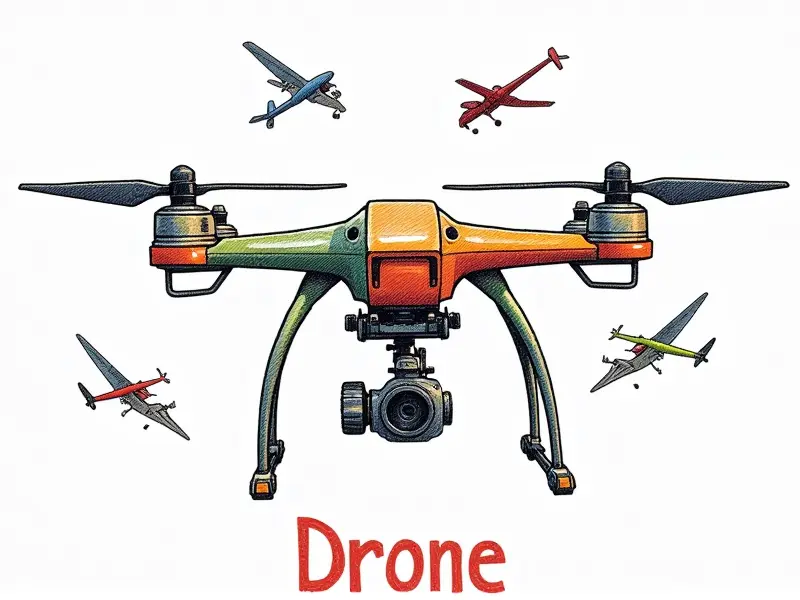Are BLDC motors reliable?

Are BLDC Motors Reliable in RC Drones?
Battery-powered brushless DC (BLDC) motors have become the go-to choice for many radio-controlled (RC) enthusiasts due to their efficiency and performance. However, a common concern among hobbyists is whether these motors are reliable enough for prolonged use in demanding applications like FPV racing drones or RC helicopters. This article delves into the reliability of BLDC motors across various RC platforms.
Testing BLDC Motor Durability for FPV Racing
The durability of a motor can be assessed through rigorous testing under real-world conditions. For FPV racers, this involves high-speed flights and frequent takeoffs and landings. Testing should include:
- Stress Testing: Running the motors at maximum power for extended periods to check for overheating or mechanical failure.
- Vibration Analysis: Evaluating how well the motor withstands vibrations during flight, which can affect longevity and performance.
- Duty Cycle Tests: Assessing the motor's ability to perform consistently over multiple flights without significant wear or degradation.
Common Issues with BLDC Motors in RC Quadcopters
While BLDC motors offer numerous advantages, they are not immune to issues. Some common problems include:
- Bearing Wear: Over time, the bearings can wear out due to continuous use and high RPMs.
- Magnet Degradation: The magnets inside BLDC motors may lose strength over prolonged usage or exposure to extreme temperatures.
- Electrical Failures: Faulty wiring or connectors can lead to intermittent failures, affecting motor performance and reliability.
Maximizing BLDC Motor Lifespan in RC Planes
To ensure the longest possible lifespan for your BLDC motors in RC planes, consider these tips:
- Maintain Proper Lubrication: Regularly lubricate moving parts to reduce friction and wear.
- Avoid Overheating: Use heat sinks or cooling fans to manage motor temperature during operation.
- Monitor Power Supply: Ensure a stable power supply with sufficient voltage and current capacity.
BLDC vs Brushed Motors: Reliability Comparison
When comparing BLDC motors to brushed motors, several factors come into play:
- Efficiency: BLDC motors are generally more efficient due to their lack of brushes and commutators.
- Maintenance: Brushed motors require regular maintenance for brush replacement, whereas BLDC motors have fewer moving parts that wear out.
- Noise Levels: BLDC motors tend to be quieter than brushed motors due to the absence of mechanical contact between brushes and commutators.
Tips to Extend BLDC Motor Life in RC Drones
To maximize the lifespan of your BLDC motors, follow these best practices:
- Proper Installation: Ensure that the motor is securely mounted and aligned with the propeller.
- Regular Inspection: Check for signs of wear or damage regularly and address issues promptly.
- Use Quality Components: Invest in high-quality ESCs (Electronic Speed Controllers) and other components to complement your motor's performance.
Why BLDC Motors Fail in RC Helicopters
The unique demands of RC helicopters can lead to specific issues with BLDC motors, including:
- Vibration Impact: The high vibration levels experienced during helicopter flight can accelerate bearing wear.
- Thermal Stress: Frequent takeoffs and landings subject the motor to rapid temperature changes that may affect its longevity.
- Mechanical Strain: The complex mechanics of helicopters, such as collective pitch control, can put additional strain on motors.
Longevity of BLDC Motors in FPV Racing Drones
The high-performance nature of FPV racing drones places significant demands on BLDC motors. To ensure longevity:
- Select High-Quality Components: Use reputable brands known for durable and reliable motor designs.
- Maintain Optimal Operating Conditions: Keep the drone within recommended operating temperatures and avoid overloading the motor.
- Monitor Performance Regularly: Track motor performance metrics to detect early signs of wear or failure.
BLDC Motor Durability for RC Airplanes
The durability of BLDC motors in RC airplanes depends on several factors, including:
- Flying Conditions: Operating the motor within optimal temperature and humidity ranges can enhance its lifespan.
- Maintenance Practices: Regular cleaning and lubrication are crucial for maintaining motor performance over time.
- Flight Patterns: Minimizing abrupt maneuvers that stress the motor can help extend its operational life.
How Reliable Are BLDC Motors in RCs?
The reliability of BLDC motors in RC applications is generally high, but it depends on several factors such as proper installation, maintenance practices, and operating conditions. By following best practices and using quality components, hobbyists can maximize the lifespan and performance of their BLDC motors.
Is BLDC Technology Trustworthy in RC?
In conclusion, BLDC technology is highly trustworthy for use in RC applications when used correctly. While there are potential issues to be aware of, the benefits of efficiency, power, and reliability make BLDC motors a preferred choice among many RC enthusiasts.

